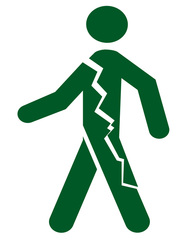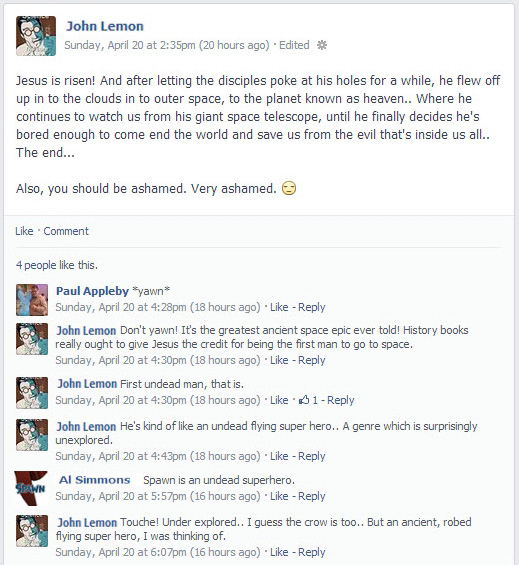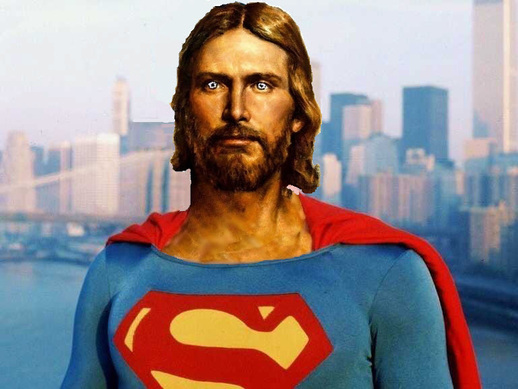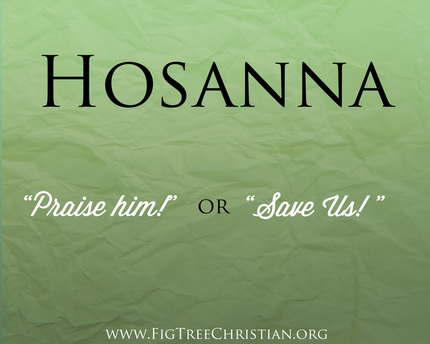|
Paul Appleby is an ordained minister in the Christian Church (Disciples of Christ), and an instructor in the areas of Theology and Evangelism with the Christian College of Georgia. He received his BA in Biblical Studies and Theology from Malone University and an MDiv and ThM from Emory University where he studied the intersection of Christian Theology and popular culture. He is a loving husband, and father of three. John 20:19-31 CEB It was Sunday afternoon. No games were on. Dinner was still a few hours away. I had some heavy reading to do, but the gravitational pull of this lazy day was too great to overcome. I hopped on Facebook, and as I delved further up and further in to the miasmal swamp of nostalgic laziness, I came across this status update from an old Youth Group friend: Before I continue, let me digress a moment to explain the yawn. Letting go of the comments for a moment, and leaving aside the fact that he chose the double-entendre "poke at his holes" while the KJV has Thomas asking to "… thrust his hand inside" Jesus (much dirtier if you ask me), in my opinion the whole "let's amuse our atheist friends and try and offend the sensibilities of silly Christians by lampooning what we believe is their monolithic understanding of a so-called 'holy' text in order to try and start a Facebook flame war" thing is played out. And yes, I realize that this is a motive that I am projecting onto John, and that likely says a whole lot more about me than about him but so it goes… You see, John is an atheist who (like me) grew up in a fundamentalist Christian home. His post lampoons a fundamentalist's grasp of the identity of Jesus, but fails to move beyond it. Here, Jesus' ascension is taken quite literally as him flying up into the clouds to planet heaven where he takes special means to observe what is still going on down here on earth (a view that accidentally corresponds quite closely with a first century Jewish understanding of structure of the cosmos). So to John, (and oddly to many Christian fundamentalists) Jesus is sort of a capricious undead proto-Superman. John rejects this idea as patently absurd. For what it's worth, I can appreciate why one would. And while I understand that to examine a joke is to murder it, this one wasn't particularly novel or funny to begin with (sorry John), so I doubt I'll lose any sleep over what comes next. John's story and the story he's referencing (along with the entire Gospel it is found in), hinge upon a central question: "Who was Jesus?" This is the fundamental question of the Christian faith. Some would say he was just a first century rabbi whose teachings sat somewhere on the spectrum of those of Rabbi Hillel and Rabbi Shammai and weren't particularly revolutionary for his time. A surface read of his teachings and those of his contemporaries demonstrates that this is a sensible, though perhaps overly simplistic, answer. Others (like Reza Aslan), say he was a political revolutionary and they point to his trial and death at the hands of the Romans as evidence. It is a compelling case and one can hear whispers of sedition in many of his teachings. Some scholars (I'm looking at you Bart Ehrman) say he was a failed apocalyptic prophet. This makes sense when you look at some of the terrifying predictions contained in the gospels. Still others, like a former Christian philosophy professor turned atheist NRA instructor and firearms enthusiast friend of mine, would say he was "a sweetheart of a guy, but a nutcase" who truly believed he was divine. These are all reasonable proposals. For what it's worth I think that the last of them is the most reasonable of all in light of the record of the Gospels. It grasps the idea that the enduring power of Jesus' teachings hinge on his identity. "You have heard it said… but I tell you…" echoes again and again in the Sermon on the Mount, and therein places Jesus above both Moses, and the Law. "Your sins are forgiven" he tells a paralytic, to the chagrin of those in attendance who rightly identify that it is solely the prerogative of God to forgive. "It is not up to me who sits at my right and who sits at my left hand, but it is up to the Father…" He tells the mother of two up and coming disciples, demonstrating an identification of the Kingdom of God spoken of in the prophets and his own mission. "Truly I tell you, today you will be with me in Paradise…", he told the thief being crucified next to him. In light of these readings it is reasonable to assume that Jesus thought he was something special. It is Jesus' identity that gives the crucifixion its importance, and his teachings their authority. Now, I don't know which of the above named proposals Thomas would have bought into following the apparent failure of Jesus' mission on Good Friday, but something freaky happened that forever altered Thomas' answer to the question of the identity of Jesus- at least according to our reading. He encountered the risen Christ. At its most basic level, Thomas had an experience. In his encounter with the risen Christ he was given three imperatives. The first was to be at peace. The second was to experience first-hand (pardon the pun) the resurrected Christ, "Put your finger here. Look at my hands. Put your hand into my side." The third was an order based on his experience, "No more disbelief. Believe!" There's an old Christian doctrine called "Prevenient Grace" the gist of it is that God has to reach out to us before we can reach out to God (or like the old hymn puts it, "Oh, how I love Jesus, because he first loved me…"). I believe that this is true. This is also why I am a Christian. Like Thomas, something happened to me. I had an experience of the resurrected Christ. However, it wasn't exactly like Thomas' experience. Had it been, had I seen him, had I touched him, I don't think I would have believed… I think I would have looked into therapy and possible institutionalization. What for Thomas was evidence that Jesus was resurrected would have been, for me, evidence of a psychotic break. My first encounter with the risen Christ happened in a way that is difficult to put into words because it was so alien. It was different than any other experience I had before. I can liken it to some things. It was like a feeling of being known in my entirety, and because (and in spite of) that being loved and accepted. It was like that feeling you get when you instantly connect to a new friend that makes it feel as though you knew each other since the sandbox. It was like the contradictory feeling of pure exhilaration and total peace that occurs the first time a confession of love is requited. It was a feeling of oneness within and without, the feeling that all is as it should be. When he spoke, his words resonated in me and moved through me, but they were not words that I would have known to speak. At its end, what it came down to was the same thing that rounded out Thomas' encounter- "No more disbelief. Believe!" And with Thomas I was left with one reply, a simple confession of the identity of the one who addressed me in that moment, "My Lord and my God!" Since that day, I have been living out the implications of that confession. The call to believe is one that shapes us in our totality. It calls us to trust, to be faithful, to assent, to share a vision and a dream. It calls us to journey in a direction that is counter-intuitive. I don't understand Jesus' identity in the same way that John does. John and I have a long history and oddly the first time I can recall hearing the voice of the risen Christ I was sitting next to him. He understands Jesus' supposed identity in the terms of an undead superhero, who went away to heaven and will return to bring the world to an end. He understands Jesus in this way and he rejects him on those grounds. As an adult, if that was the Jesus I encountered, I would too. That is a Jesus that defies reason. I don't think it is as simple as all that, and I don't believe in the kind of either/or mentality that inspires this interpretation of Jesus (I believe Jesus to be more of a both/and kind of guy). In my inmost being when I experienced Jesus I encountered a living Christ calling me to live out of a kingdom that is already but not yet: to do justice, to love all- because that is the true thread that ties the universe together -a thread that is stronger than anything, even death. This Christ is alive and well, and he is my Lord and my God. If you like what you are reading there are many ways to connect:
And as always, contributions are greatly appreciated. John 20:1-18 CEB What happens when your leader, your teacher, your Messiah is killed? All the anticipation of what Jesus was capable of doing and it happened: he was crucified. The disciples were in a scary place. The people had called for blood and their thirst was not yet quenched. They did the only reasonable thing they could think of, they hid. Then there was Mary. On the day after the Sabbath, waiting the customary time period before visiting a dead loved one Mary began her trip to Jesus’ tomb in the pre-morning light. She couldn’t wait any longer. It was time to say goodbye. That was the strength of her love for the savior. Fear, or lack of sunlight, was not going to keep her away. Love. We are afraid to attach too much love to Mary Magdalene because our idea of love has implications. It is difficult to see it for what it was on that Sunday morning. Mary’s love was a deep devotion and self-sacrifice. She was putting her life at risk just to say goodbye. And what did she find? In the gray morning light she discovers no guards keeping watch, and the sealed tomb had been opened! Fearing some robber or perhaps the guards themselves had taken the body to inflict more punishment on it, she ran to the disciples Jesus was closest to: John and Peter. They go and see but give no comfort to Mary. She remains behind weeping. Tears have magical properties. I bet you never knew that. I don’t mean supernatural magical properties. I mean magic in a way that magic actually exists, to trick us. To make us see something else instead of reality. Tears can literally warp our vision keeping us from seeing the whole truth. Tears can also keep our souls from seeing reality. This was true for Mary. We can say that love had blinded her but it was her preconceived ideas regarding the open tomb she was really blinded to. She had taken the most logical option to an open tomb and fell into depression. (Logically, the body had been stolen.) So, in the presence of angels she is not fearful or in awe because her tears had played a magic trick and she could not see the divine presence through the salty river covering her eyes. She could not see God’s awesome miracle beyond what she believed to be true. Even when Jesus stands before her she is still in the grip of the magic trick. Have you ever heard the term ‘sunlight is the best disinfectant?’ I wish to take that one step further, S-O-N, Sonlight is the best disinfectant. Mary, even if it was only for a couple of hours, was not living in the truth. She was in the darkness. The truth was glorious and unbelievable! “Mary.” Just by saying her name her tears stop and the truth becomes clear- her savior lives! I believe it was her deep love that made her the first to share the resurrection story. While the other disciples hid, she yelled the truth, “I have seen the Lord!” While the others questioned, she accepted. Shout it from the mountain tops. Sing it in the streets. There is nothing to hide from. There is nothing to be ashamed of. Today we celebrate. Today we rejoice. Our savior lives! Sometimes when I am watching a Muppet Christmas Carol I think of Maundy Thursday, Good Friday, and Easter. I know, crazy, right? It's because of a couple of scenes staring the Great Gonzo, aka Charles Dickens. It happens when the Ghost of Christmas Future appears, and ends when the ghost has left. I debated whether to post this Good Friday or Easter. No one wants to talk about the darkness of Holy Week when the we get to the celebration of Sunday. But wait! So many do not want to talk about the darkness of Holy Week in the middle of Holy Week. So many want to talk about Easter on Good Friday, the same day we remember Jesus died on a cross."It's Friday, but Sunday's coming!" Here it is, we cannot appreciate the glory of Easter without the darkness of Good Friday. There is no celebration without the cross. (If you cannot understand a cross imagine a noose, or an electrocution chair. It was execution. Today we understand Jesus was executed and died from it.) Gonzo chooses to leave, but we need to stay. We need to stay because, like Scrooge, we have something to learn. We gloss over the hard parts too often, and it leaves us shallow and incomplete. It's Friday. It's OK to mourn. It's OK to cry. It's Friday. John 13:1-17 CEB Before the Festival of Passover, Jesus knew that his time had come to leave this world and go to the Father. Having loved his own who were in the world, he loved them fully. Jesus and his disciples were sharing the evening meal. The devil had already provoked Judas, Simon Iscariot’s son, to betray Jesus. Jesus knew the Father had given everything into his hands and that he had come from God and was returning to God. So he got up from the table and took off his robes. Picking up a linen towel, he tied it around his waist. Then he poured water into a washbasin and began to wash the disciples’ feet, drying them with the towel he was wearing. When Jesus came to Simon Peter, Peter said to him, “Lord, are you going to wash my feet?” Jesus replied, “You don’t understand what I’m doing now, but you will understand later.” “No!” Peter said. “You will never wash my feet!” Jesus replied, “Unless I wash you, you won’t have a place with me.” Simon Peter said, “Lord, not only my feet but also my hands and my head!” Jesus responded, “Those who have bathed need only to have their feet washed, because they are completely clean. You disciples are clean, but not every one of you.” He knew who would betray him. That’s why he said, “Not every one of you is clean.” After he washed the disciples’ feet, he put on his robes and returned to his place at the table. He said to them, “Do you know what I’ve done for you? You call me ‘Teacher’ and ‘Lord,’ and you speak correctly, because I am. If I, your Lord and teacher, have washed your feet, you too must wash each other’s feet. I have given you an example: Just as I have done, you also must do. 16 I assure you, servants aren’t greater than their master, nor are those who are sent greater than the one who sent them. Since you know these things, you will be happy if you do them. I have worked, volunteered, led, followed, counseled, directed and attended Summer Church Camp. I gave most of my young adult life to it. I have discovered there are a few reoccurring things that happens no matter what the camp. (Early Elementary through High School, over four different camping facilities, three states.)
Traditionally, in biblical times, when a guest would enter a house their feet would first be washed. The people wore sandals during the time, the roads were dusty, covered with dung and trash. Naturally their feet would become dirty. In comparison, if you wear shoes your feet would probably be considered clean. Because of how nasty the task of cleaning feet would be, usually it was the lowliest servant who was chosen to do it. It was no wonder Peter didn't want Jesus to wash his feet. To him, and I am assuming us, Jesus isn't below us, but above. We would rather waste 40K in expensive perfume to wash Jesus' feet than allow a Savior to wash ours. Jesus, in an act of humility, is living out his own words, "The last shall be first and the first shall be last." In all my years of camp, watching the kids humbled before a kiddie pool as their fellow youth wiped their feet, I learned what Jesus was doing. We are terrified of allowing Jesus to push us up because it puts the Christ below us. The foot washing becomes the first real move to the cross: Christ below us. Christ the servant. Christ who understands when we don't want to be real with others; we worry about exposing ourselves. A true leader takes the lowliest job by raising those around him or her. This is a type of humility many of us don't talk about: humility in accepting praise and focus. It is a humility we are not good at because, it either doesn't work and we look arrogant, or we push it away and become Peter. "Not me Jesus. I'm not worthy Jesus." Today, this Maundy Thursday, we are humbled by being raised up. Tomorrow is Good Friday, when death comes. For now, we must accept it at that. Christ will die for us. Christ below us. I am humbled. If you like what you are reading there are many ways to connect:
And as always, contributions are greatly appreciated. Matthew 21:1-11 CEB When they approached Jerusalem and came to Bethphage on the Mount of Olives, Jesus gave two disciples a task. He said to them, “Go into the village over there. As soon as you enter, you will find a donkey tied up and a colt with it. Untie them and bring them to me. If anybody says anything to you, say that the Lord needs it.” He sent them off right away. Now this happened to fulfill what the prophet said, Say to Daughter Zion, “Look, your king is coming to you, humble and riding on a donkey, and on a colt the donkey’s offspring.”" The disciples went and did just as Jesus had ordered them. They brought the donkey and the colt and laid their clothes on them. Then he sat on them. Now a large crowd spread their clothes on the road. Others cut palm branches off the trees and spread them on the road. The crowds in front of him and behind him shouted, “Hosanna to the Son of David! Blessings on the one who comes in the name of the Lord!b]" Hosanna in the highest!” And when Jesus entered Jerusalem, the whole city was stirred up. “Who is this?” they asked. The crowds answered, “It’s the prophet Jesus from Nazareth in Galilee.” Eugene Boring, a former New Testament professor at Brite Divinity School, added a very interesting perspective to the Palm Sunday scripture. See, he didn’t think very highly of the crowds gathering to meet Jesus in the streets. After all, these people who were praising Jesus would be calling for crucifixion by the middle of the week. As Boring put it, the crowds knew “all the notes and none of the music. Knowing the truth isn’t the same as doing the truth.” They were singing praises and doing all the right things but they didn’t know why. Sometimes we get to Palm Sunday and forget that we are still in Lent. Even in times of joy and celebration we need to find a place to meditate and give back to God. I am really drawn to the musical analogy Boring gives because it forces me to reflect on myself. I spent most of my life in music. In many ways singing was my only form of public expression. I sang because my soul yearned to share some inner meaning that I just couldn’t put into words. In more than one way my life was lived opposite of Boring’s quote. I knew the music but I could not express the notes. This was made clear to me when I decided to seek a music degree from Kennesaw State University. Looking back, I had given a technically terrible audition to get into the school. My sight reading was sub-par, my listening skills test was terrible, and my technical performance was ok. Based on that there was no reason they should have accepted me. Not to mention I had rubbed one of the professors the wrong way. (I was always sure of myself and have always been driven to accomplish whatever I set myself to do. In my heart I knew I was going to get a degree in vocal music. However, my drive came across as arrogant. Because of that, the professor wanted to prove me wrong. Looking back, I can see it.) So what got me in? One of the other professors heard something: the music. Even though it was clear I would be struggling from beginning to end, he knew there was something in me worth teaching. After my audition he pulled me aside and talked to me for almost an hour. He was brutally honest. He told me where I failed. He told me the average student would never make it into the program with my scores. Then he told me he wanted me to pursue a music education. He said, and I paraphrase, "I felt the music. When it comes down to it, it doesn’t matter how musically intelligent you are or how well you read sheet music, most people can’t feel the music." He got me in the program and I made it out by the skin of my teeth. He would eventually write one of my letters of recommendation for seminary. By the time I finished my undergrad I not only knew the music but I could read the notes. I have expressed before that I believe life is more than one choice or the other. Often life means embracing how multiple options are correct at the same time. When it came to music I used to think it was all soul and no technique. In other words singing was more about knowing the music rather than knowing the notes. It was through a college education I discovered even the musicians who play by ear train themselves to perform at a certain level. You can desire to sing with passion and drive all day long but if you don’t have the chops to back it up, no one is going to listen. I also believe you can perform with technical perfection; you can read and perform music with pinpoint precision, but if you do not believe in your heart what you are doing ultimately you will not get to the top. That is just true for life. You can love any profession but if you don’t have the skills to back it up no one is going to hire you. In the same breathe, if you are good at what you do but there is no passion or drive behind your work you can’t hope to make it to the top because deep inside you don’t really want it. That is also true for faith. God gave us two mandates: to love God with all our heart and to love our neighbor as ourselves. One, loving God, requires our inner self. It is a personal relationship with the divine. The thing is, we can love God all day long but if we don’t back it up with action it doesn’t amount to much. In the same breathe we can go through the actions of being a faithful person; we can give to the poor and go to church every Sunday, but if we don’t have the love of God behind what we do- it’s empty and hollow. Jerusalem was shaken by Jesus’ unmistakable entry. They had no idea what was going on. People were celebrating and throwing branches in the street. Most of them were completely clueless yet, they followed the crowd. They shouted for deliverance; they called Jesus a prophet. Doing something correct, but not knowing why it is correct, is still wrong. When you perform a song it is one thing to be accurate, it is another to feel what you are performing. Following a tradition or habit without knowing why you are doing it is like singing without soul. Like I said before, it is empty and hollow. In many ways they didn't even know what they were saying.  Hosanna is a Hebrew word. The people in the streets who were yelling it took the word to mean 'praise' or 'glory.' In many ways that is how we define hosanna. That's not what it originally meant. Hosanna, literally translated means 'save me.' Now the crowds didn't say it that way and it is most certainly not translated in that manner. Even the Message uses the word hosanna. I just think it adds to the clulessness and spiritual emptiness of the crowds. Not only are these the same people who will be calling for Jesus' crucifixion later in the week, but they don't even realize they are calling out to Jesus for salvation! “Save us!” they yell as Jesus rides down the street. Meanwhile, as they say this they are smiling and praising the whole time. Jesus had to have known what was going on. He had to have felt the false admiration from the crowds and at the same time realized the scorn coming from the Jewish leaders not even participating in the celebration. Yet he continued. Yet he rode on starting a chain of events that could not be undone. I have to imagine, this being the most joyous day of the entire holy week... it was a letdown. It gives us a responsibility. We need to be authentic to our inner selves. We need to know why we are choosing to celebrate or revere on a Sunday morning. If Jesus were to ride a donkey down our main street would we be able to authentically praise God or would we know the notes and none of the music? Would we know whether to spill out praise and adulation or cries for salvation? These are important questions to think about. It doesn't matter what faith tradition you come from: over 2,000 years ago Jesus Christ willfully made a decision to become a human sacrifice. No matter what denomination you come from, that event happened. Today marks the beginning of something new. God comes to us in humility. Know in your heart how you are coming to God and play it out in the notes and the music. Know the truth and do the truth. Look for more Holy Week meditations throughout the week.
It's official. On Friday, April 11th I will be a member of Reddit for one whole year. The site marks the occassion by putting a small cake by my user name. Most of that time, over the past year, has been spent on the /r/Christianity sub. While I am still a noob in many respects, I wanted to mark this occasion by sharing some very important lessons I have personally learned over that time. Because I will be sharing this with the /r/Christianity sub tomorrow, I want to stress, these are not lessons for them, but us.  We treat the internet like we did missionary work a hundred years ago: poorly. The modern missionary movement had an ah-ha moment with one little sentence. "God has always been there. " The focus turned from bringing our Western style Christianity to them, but, instead, trying to help them discover how God has always existed within their culture. It means Christian worship looks different in, let's say, Africa, than it does in central Europe or the United States. Up until that moment missionaries were practically trying to cram their culture with Christianity down the throat of the mission field. Then they were confused when things like the Boxer Rebellion took place. The biggest change that happened with, "God has always been there," was the realization that the missionaries needed to learn the culture of the people they were trying to Evangelize to, and ultimately create healthy relationships with the people. (Some of y'all over seas might see the obviousness in what I am about to say.) From an American perspective, the Christian culture is no longer the general culture. We need to realize we are not the societal 'normal' anymore and we need to treat our nearby missions like we do our overseas missions: with understanding of the outside culture. Christians have taken Romans 12:2 (Don’t be conformed to the patterns of this world, but be transformed by the renewing of your minds so that you can figure out what God’s will is—what is good and pleasing and mature.) and in their effort to follow the scripture became poor missionaries. Let me explain: If a random person were to walk into an American, Sunday worship they would be met with songs they have never heard, cadences they won't understand, and traditions that don't make any sense. If they are a mega-church they will be necessarily ignored, and if they are a dying church they will be overly greeted. A hundred years ago we could return to our home churches and we could have our version of Christianity and we they could have theirs. That can't work anymore. Not when the culture we are reaching out to is supposed to be our own. What does that have to do with the internet? People want to learn about God, but they cannot connect to our Christian culture in church. They turn to the internet, and Reddit. In response Christians try to take their culture, praise songs and all, and put it online. When it is ignored or down voted, they don't understand why. Which leads me to #2:  Most churches become the most despised things on Reddit: Dumpers, or also known as, Spammers. Before you are all offended, in the beginning, I was a dumper. Dumping is when you take your sermon, text, whatever and just dump it to the site and leave. If you do this, you are a poor evangelizer and are wasting the internet. Think about it this way. You are bringing a God given message. To do this you must know the community you are giving the message to. Just a hint, this community (Reddit, YouTube, or otherwise) isn't going to sit around and watch you speak in front of a camera for 45 minutes. They are also not going to give your message the time of day if you copy and pasted it into a blog. ( Fig Tree's most popular meditation was posted almost a year ago. Hardly any pictures; mostly words. There are exceptions to everything. Legally Speaking.) Usually it doesn't matter if you created a turd or spun gold, if you are not connecting with how they connect you've just posted a big pile of nothing. I saw a crazy statistic last week: 2 million blogs are written everyday and almost as many videos are posted. No one, even fellow Christians, are going to give your work the time of day when there is that much highly crafted content out there. Sorry. The Christianity sub. doesn't take dumping lightly and it can get you blocked if you are not willing to contribute to the group in something other than your posts. Pinterest naturally rewards the pinner who pins other's work because the other sees it. Occasionally they will follow up and pin something of yours. Facebook is all about relationship, and dumping just goes down the feed and is lost. Consider the community. They are all different and exciting in their own way.  If you are not willing to stick around and show you care, why should they care? The internet is full of people who just want to know they are worth something. To me, it seems more important to spend time raising other people up and showing support. So maybe my page hits are down one week. It's not as important as getting out there and showing others they are awesome. As an extra note: the moderators at /r/Christianity need to be thanked on a daily basis. They are working hard to make sure the sub over there is a safe place for people to educate, share prayer concerns, ask questions, and discuss outside sites. It doesn't look like Christianity has looked for the past 10 or so decades. I think that is a good thing. If you like what you are reading there are many ways to connect:
Connection Board And as always, contributions are greatly appreciated. Romans 8:6-11 CEB The attitude that comes from selfishness leads to death, but the attitude that comes from the Spirit leads to life and peace. So the attitude that comes from selfishness is hostile to God. It doesn’t submit to God’s Law, because it can’t. People who are self-centered aren’t able to please God. But you aren’t self-centered. Instead you are in the Spirit, if in fact God’s Spirit lives in you. If anyone doesn’t have the Spirit of Christ, they don’t belong to him. If Christ is in you, the Spirit is your life because of God’s righteousness, but the body is dead because of sin. If the Spirit of the one who raised Jesus from the dead lives in you, the one who raised Christ from the dead will give life to your human bodies also, through his Spirit that lives in you. I want to express some concepts to you today that I have spent all of my short adult life formulating. (I am 33 years old.) I hope to eventually expand these thoughts into something a little longer. When we are born, we are born completely and totally self-centered. Everything we know is based on ourselves. We were formed individually, and we spent 9 months by ourselves. (Unless we are a twin.) Every resource that comes our way is completely and totally for us. Even after we are born, we require so much attention and care. This self-centered nature must not be confused with selfishness. Being self-centered is not a choice. Being selfish is. As we begin to grow we begin to understand the world does not revolve around us. There comes a time where we realize there was an existence before we entered it. The minute our world becomes more than our self, we can be selfish, selfless, or other-centered. Selfish: Aware of the needs of others and purposefully choosing to care for the self over and beyond the other. Selfless: Aware of the needs of the self and purposefully choosing to care for the other over and beyond the self. Self-Centered: Unaware of the needs of others. Only aware of the self centered needs. Other-Centered: Unaware of the needs of the self. Only aware of the other centered needs.  Sometimes when we see people taking things for themselves without regard for those around, we want to call them selfish. If they were selfish we can call their actions, sin. Yes folks, I use the CEB translation week after week. I praise it. I have defended it. Today, I disagree with it. The NRSV uses the word "flesh" instead of "selfishness/self-centered" The NIV uses the term "sinful nature." What's the best term? Well, that's the problem. Technically "flesh" is but, we use the term "sins of the flesh," too haphazardly today. There is some ambiguity to the text. A more honest translation of the Greek would read: "those who are according to the flesh the things of the flesh; but those according to the Spirit the things of the Spirit." The flesh and Spirit can be personified with a more literal translation. Augustine would translate this to be the flesh being the things we see but are not real, and the Spirit being the things that are real but we cannot see. Personifying "flesh" allows us to think beyond the carnal and actually see how "selfishness" or "sinful nature" is a good translation... Have I completely confused you yet? I really hate writing things where the average Joe or Jill can't easily read. Let me try it a different way. According to the Desert Father Augustine: What we see (in this case flesh) is not real. What we do not see (in this case the Spirit) is real. Selfishness is being aware of the needs of others and purposefully caring for the needs of the self over and beyond the needs of the other. Being 'according to the flesh' is being in sin. (Living in what you see instead of what is real.) According to my definition, one cannot see they are being self-centered, because they are unaware of the needs of others. Being self-centered is not living in sin, and possible it's a really poor word choice on the side of the CEB translation team.  Splitting hairs? Maybe. What this really boils down to is a functioning body, as in the Body of Christ. That is why it is so important this scripture includes the words: "The body is dead because of sin." Selfishness separates us from one another and breaks the body apart. (You might be ready to call me out.) Self-centeredness can do the exact same thing. The difference is, when the person breaking the body apart doesn't know they are doing it, the sin rests in the arms of those who do realize. Job was blameless before God, but he suffered from self-centeredness. He couldn't see the big picture. In the end, God didn't give Job the trail he had been begging for. God gave Job the big picture. Job is the key to this all: It wasn't Job who had sinned, it was his friends. See? Selfishness is sin. Self-centeredness is ignorance and must be loved and corrected. Those who do not love and correct are the sinners. Both break the body, but only one is the fault of the person committing it. Now next week I will talk about how many angels can fit on the head of a pin... just kidding. I appreciate you following this through with me. I might have split a few hairs, but I hope, with the help of God, I made a good point. If you like what you are reading there are many ways to connect:
Connection Board And as always, contributions are greatly appreciated. |
Categories
All
Archives
October 2023
|











 RSS Feed
RSS Feed